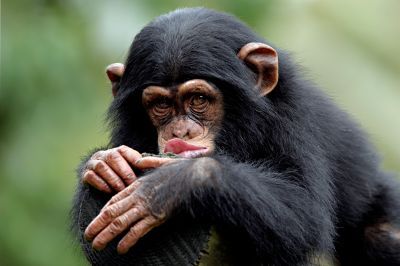New vaccine prevents Chikungunya in monkeys, mice

An experimental vaccine provided 100 percent protection against the mosquito-borne chikungunya virus in primates and mice, offering hope it will work for humans too, a new study found.
There is no known vaccine or treatment for the disease, which has infected millions of people in Africa and Asia and can cause debilitating pain and, in extreme cases, death.
Researchers say human trials will start within a year or two, and that the discoveries made could lead to vaccines for diseases stemming from other so-called alphaviruses, such as various deadly strains of equine encephalitis, and the Ross River virus.
The discovery comes at a time when global travel and trade, along with climate change, are expanding the habitats of the mosquitos that carry these pathogens.
Scientists led by Gary Nagel, Director of the Vaccine Research Center at the US National Institutes of Health in Bethesda, Maryland identified the proteins that give rise to chikungunya.
In laboratory experiments, they created a safe variant of these virus-like particles and immunised rhesus macaques, waiting 15 weeks before exposing the animals to the disease. All of the monkeys survived.
In a second set of experiments, the researchers injected a serum containing the antibodies the monkeys had developed into genetically-modified mice that essentially had no immune system.
The rodents were completely protected from what would have otherwise been a deadly dose of the virus.
"The mouse study proves that it is the antibody response that is responsible for the protection that we see in the monkeys," Nagel told AFP by phone.
Published online Thursday in the journal Nature Medicine, the study showed that the virus had been suppressed to harmless "background levels" in the vaccinated monkeys.
"The next step is to figure out how to make it compatible for human use. We are in the process of adapting that to a cell line where it could be made and tested in (preliminary) phase one trials," Nagel said.
Phase three trials designed to verify efficacy could follow within another two years, he added.
Chikungunya gets its name from a Swahili word meaning "that which bends up," a reference to arthritis-like symptoms that leave victims stooped. The disease also causes intense headaches and fever.
An outbreak on the French Indian Ocean island of Reunion in early 2005 infected a quarter of the population in less than two years, causing some 250 deaths.
It is rampant today in India, Thailand and other parts of southeast Asia, Nagel said.
mh/bm
Subscribe to Independent Premium to bookmark this article
Want to bookmark your favourite articles and stories to read or reference later? Start your Independent Premium subscription today.

Join our commenting forum
Join thought-provoking conversations, follow other Independent readers and see their replies